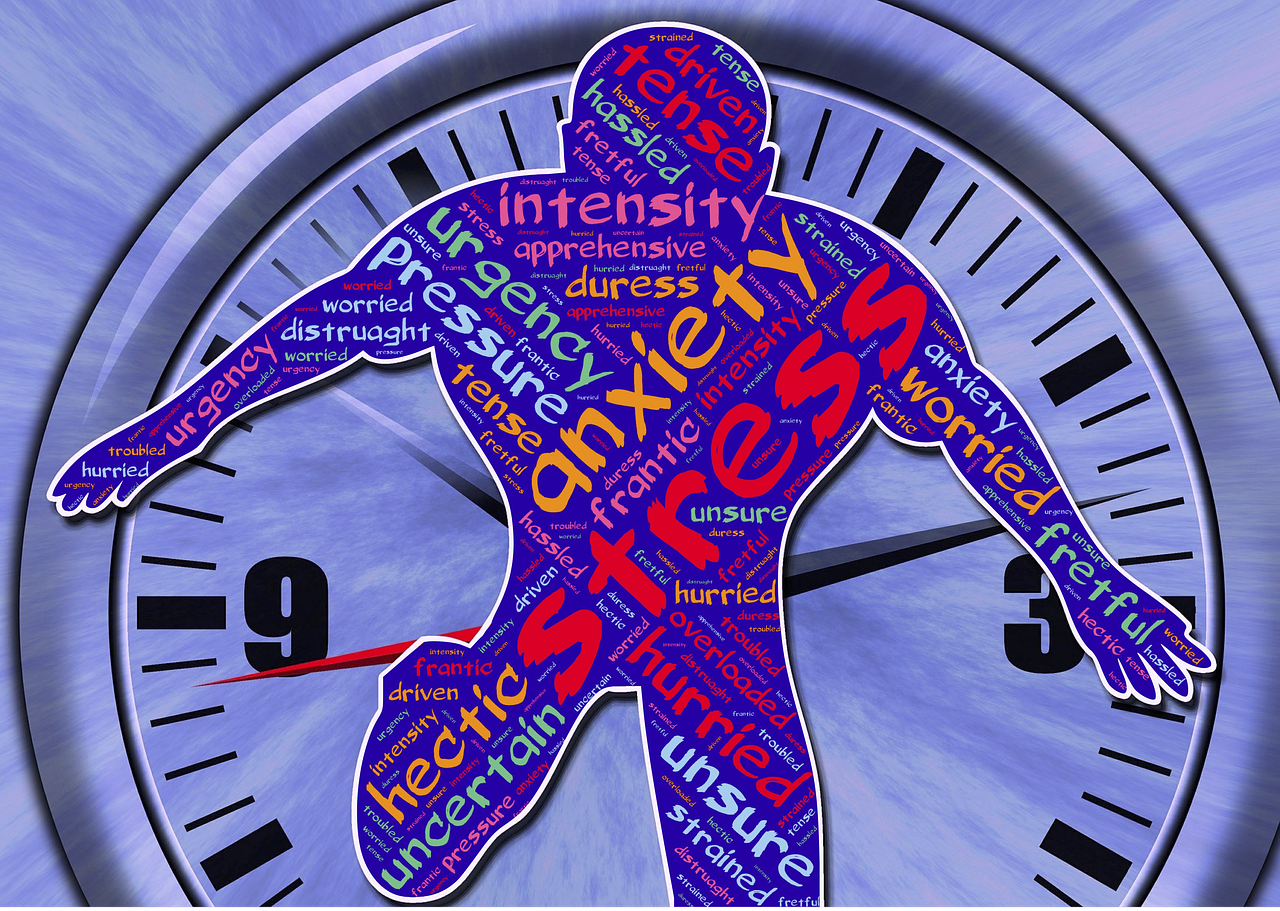Everyone feels anxious from time-to-time. Typically, it happens when we experience stress and tends to gradually subside after the high pressure moments have passed.
Anxiety is part of our body’s natural defences, a reaction to feeling under threat.
It is an emotion that is characterised by feelings of tension, worried thoughts, and physical changes like increased blood pressure.
Most of us worry sometimes – about things like friendships or money – and feel anxious when we’re under stress, like at exam time. But afterwards we usually calm down and feel better.
But when you’re not in a stressful situation, and you still feel worried or panicky, that’s when anxiety can become a problem.
It is important to distinguish the difference between feeling anxious and having an anxiety disorder as a diagnosis.
Anxiety disorders can affect you both mentally and physically, as the body releases hormones such as adrenaline and cortisol when it feels under threat.
Mental Health Symptoms of anxiety can include:
• Difficulty controlling fears or worries
• Trouble concentrating on anything besides your current fear or worry
• Feeling tired and grumpy
• Feeling as if you can’t stop worrying
• Thinking about a situation over and over again
• Irritability
Physical Symptoms of anxiety can include:
• Gastrointestinal (GI) problems
• Insomnia
• Heart beating really fast or thinking you’re having a heart attack
• Shaking or trembling
• Sweating
• Feeling sick
• Tiredness
• Dizziness
• Faster breathing
• Muscular aches and pains
• Headaches
If you experience any of these symptoms above, it doesn’t mean you definitely have an anxiety problem. But if any of them are affecting your everyday life, it’s a good idea to tell someone you trust about how you’re feeling.
What is an anxiety disorder?
Anxiety disorder occurs when anxiety starts to severely impact on a person’s life. Rather than feeling anxious in response to actual danger, someone with an anxiety disorder will experience the same symptoms in situations they perceive as dangerous (e.g. meeting new people or taking public transportation).
The various types of anxiety disorders include:
• Generalised anxiety disorder: excessive worry about anything and everything, including worrying about worrying.
• Social anxiety disorder: anxiety in social situations, often rooted in the fear of doing something wrong and being judged by others.
• Panic disorder: repeated panic attacks and worry about future panic attacks.
• Agoraphobia: anxiety about having a panic attack in certain situations and not being able to escape or to get help.
• Post-traumatic stress disorder (PTSD): this anxiety disorder is caused by experiencing stressful, frightening or distressing events, which lead to severe and persistent symptoms like nightmares, flashbacks and insomnia.
• Specific phobias: intense fear of objects or situations (e.g. dogs).
When anxiety or panic becomes intense and persistent, it can have a huge impact on our health and wellbeing. If you feel that you are suffering from the mental health condition, it is important to know that there is support and treatment available to prevent it from further affecting your life.
What causes anxiety disorders?
Anxiety disorders aren’t caused by a single factor, but rather by a combination of things. A family history of anxiety, a person’s physical health, personality traits and stressful life experiences can all be contributing factors.
While some situations can cause anxiety, such as the loss of a loved one, divorce or overworking, some people have an anxious personality and can develop it for no obvious reason.
Anxiety disorders are likely to develop over time and are usually sustained by unhelpful thinking patterns.
Support and treatment for anxiety
Self-help
There are a number of ways you can work to combat anxiety during your day-to-day life. These include:
• Avoid rushing and having an overwhelmingly full schedule
• Try to stop yourself from being competitive and setting unrealistic goals for yourself
• Give yourself time for relaxation and enjoying your hobbies or interests
• Establish a good sleep routine
• Exercise regularly
• Avoid smoking
• Limit your caffeine and alcohol intake
• Avoid cannabis and other illegal drugs
Create a list of all your worries and problems, then tackle the items one by one rather than allowing yourself to be overwhelmed
Professional help
It is important that you speak to your GP if anxiety is affecting your day-to-day life or causing you distress. They will be able to offer you counselling or refer you to a specialist for treatment to ease your anxiety symptoms.
If you feel you are suffering from a anxious disorder and don’t know how to manage it, get in contact with us and ask for support!

